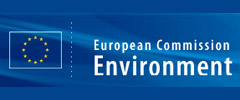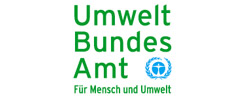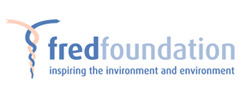Why gender equality will make or break the Sustainable Development Goals
Blog by WECF Director Sascha Gabizon for the World Economic Forum website
21.09.2015 |
Empowering women by giving them access to Green Technologies
WECF Director Sascha Gabizon wrote a blog as part of a series on the Global Goals for Sustainable Development, in collaboration with the Stockholm Resilience Centre. This article focuses on goal 5 – Achieve gender equality and empower all women and girls
Although the Convention on the Elimination of All Forms of Discrimination against Women (CEDAW) has been ratified by more countries than any other UN convention, the world is far from gender equal. In fact, we even see a roll-back of women’s human rights in many countries, with governments trying to reverse women’s sexual rights or making childcare so expensive that women are practically forced to give up their jobs. We also see a rise in the number of girls dropping out of secondary school in many developing countries because of the cost and forced marriage.
Parity-vs-performance-gender
To reverse this trend, Women in Europe for a Common Future, together with over 600 women’s civil society organizations from 100 countries, is working to ensure that women’s equality is an integral part of the Sustainable Development Goals (SDGs) and, in particular, that Goal 5 – which focuses on gender equality and the empowerment of women and girls – is achieved.
Gender matters and here’s why:
- While some progress have been made in the last 20 years to eradicate extreme poverty (those living on less than $1.25 a day), women and children are overrepresented in the lowest income groups. When the Lula government in Brazil started with its social protection payments for those living in extreme poverty, 90% were women. We need to focus on women living in extreme poverty, and ensure their rights are enforced, and that they obtain equal decision-making power.
- It is important to protect the rights of women migrants and domestic workers, refugees, sex workers, indigenous women, and women in informal and precarious jobs and without labour rights. The very first step to achieve this is ensuring a social protection floor for all, such as the Brazilian example of the Bolsa Familia to bring women, from whatever background, out of the extreme poverty trap. The second step is ensuring social responsibility throughout the value chain, making suppliers abide to equal pay and international labour standards.
- A quota for women in politics, as India now has for local elections, is essential. Women in these panchayats are changing how public budgets are spent, for example towards the supply of safe drinking water. Indeed, universal social services are also important as a generator for employment particularly for women.
- Many women face stigmatization and physical threats when trying to participate in public life and decision-making, for example Libyan lawyer and democracy activist Salwa Bugaigis who was murdered in 2014. One in three women will suffer gender-based violence in their lives. This is an epidemic that must end.
- Caring, cleaning, cooking and fetching water and fuel wood are all unpaid tasks predominantly carried out by women, and to a lesser extent, children. Time-use surveys in Kyrgyzstan show that men spend two hours a day while women almost six hours a day on unpaid care work. That leaves no time for paid employment. The organization Equidad the Genero estimates that 60% of the “work value” worldwide is created by women, but as most of it is unpaid, women subsidize the global economy.
- Research by trade unions shows austerity measures have disproportionally impacted women, as closures of social services (children day care, etc.) have led to an increased unpaid care burden on women. The SDG gender goal recognizes this unpaid care burden, and we will push for a reduction and more equal distribution of these unpaid tasks, between state and households, and between women and men.
- Exposure to toxic substances such as mercury is disproportionately harming women and children in some areas. Despite a global convention to phase out mercury, Japanese companies export mercury to Indonesia where some families use their kitchens to melt the ore, filling the air with dangerous mercury fumes. As well as affecting the health of women, their children risk severe birth defects. The women who worked in Chelyabinsk in the former Soviet Union to clean up radioactive waste after the first Mayak nuclear accident, compromised their own health, and their children’s, and in some cases even their grandchildren’s.
- While some, including UK Prime Minister David Cameron, argue for fewer goals, the goals only make sense as a universal, indivisible agenda of all 17. Even if all countries would give women equal land tenure rights, this would still not be enough if climate change destroys their livelihood.
Gender equality cannot exist on a dead planet, therefore we continue to strongly advocate for goals that will ensure corporate accountability and address environmental and climate destruction.
Author: Sascha Gabizon is Executive Director of Women in Europe for a Common Future (WECF) and Co-Facilitator of the Women’s Major Group on the Sustainable Development Goals.
Guest editor of this series is Owen Gaffney, Director, International Media and Strategy, Stockholm Resilience Centre and Future Earth
Related News
The 62nd Commission on the Status of Women
Worldwide representatives and officials gathered at the United Nations headquarters in New York City to discuss the matters of women and sustainability
28.03.2018
Petition: calling for international solidarity to support environmental defenders Victoria Tauli-Corpuz & Joan Carling
Feminists Condemn Philippines President Duterte’s Accusation of Activists and Indigenous People Leaders as Terrorists
14.03.2018
Using community-based data monitoring to track gender equality realities on the ground
New York: Official Side Event to CSW62
12.03.2018
Implementing Agenda 2030 in Georgia: Where Are We Now?
WECF organised with Georgian government and the UN a workshop on the Sustainable Development Goals in Tbilisi, 19-21 February 2018
22.02.2018 | Tbilisi, Georgia








































